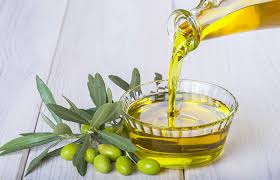Most agricultural oils are produced from seeds. The olive is one of the few fruits that produce oil. And olive oil plays a major role in the Mishkan and Beis HaMikdash.
It is a component of menachos, the flour-offerings that are required in a number of situations and consigned in part to the mizbe’ach, with the remainder, in most cases, consumed by kohanim.
And, of course, olive oil is the fuel the Torah requires for the menorah that stands in the kodoshim, the penultimate holiest place in the Ohel Mo’ed and Beis HaMikdash.
Which purpose opens parshas Titzaveh, where “pure olive oil derived from thorough crushing” is to serve “to illuminate” (Shemos 27:20).
Rashi comments that such purity is only required for the oil used in the menorah, but that which is used for menachos needn’t be of that highest quality.
Rav Shlomo Yosef Zevin sees menachos as representing physical nourishment and the menorah’s light as representing mind nourishment, “illumination” in its nonliteral sense.
Many unhealthy substances in food can be tolerated by bodies, he notes. But foreign, untrue ideas are a more subtle, and hence more dangerous, threat to minds.
Moreover, he continues, efforts are needed to attain both our physical and spiritual sustenances. Our “daily bread” requires labor, and grasping Torah truths is earned only through mental work (“If someone says… ‘I didn’t labor but attained [Torah]’ – don’t believe him” [Megilla 6b]).
But, says Rav Zevin, there is a difference in those respective efforts. When it comes to physical sustenance, we are enjoined to labor only to the extent that yields us our needs; we are not justified in making “earning a living” some sort of high sacrament and giving it our “all.” When it comes to ascertaining truth, however, to studying Torah, we must apply our entire selves, our “hearts and souls,” to the task.
And that, he contends, is what is telegraphed by the acceptability of second-tier purity oil for menachos, but only perfectly pure oil for the menorah.
© 2023 Rabbi Avi Shafran
